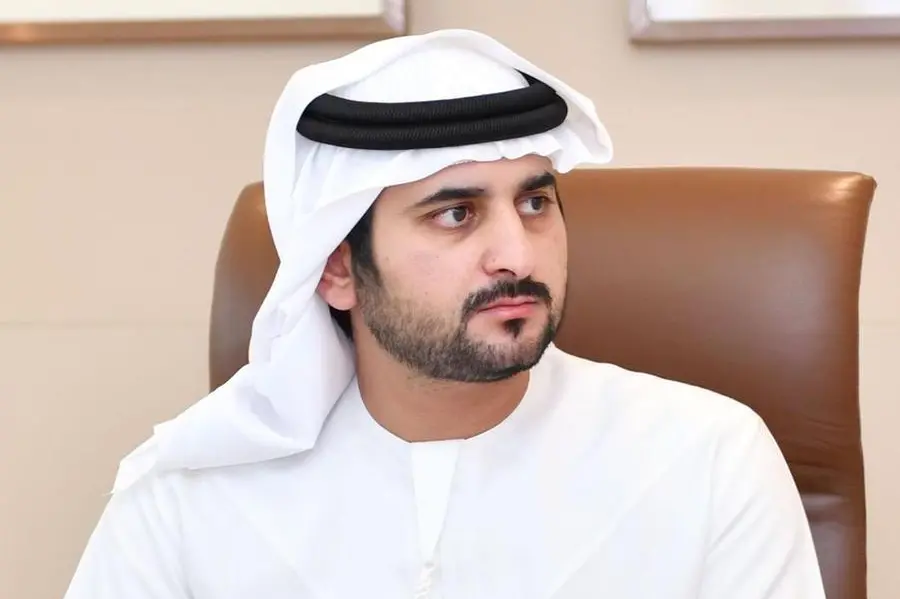PHOTO
H.H. Sheikh Maktoum bin Mohammed bin Rashid Al Maktoum, First Deputy Ruler of Dubai, Deputy Prime Minister and Minister of Finance, affirmed that empowering new generations of leaders will go a long way in ensuring the continuity and sustainability of the nation’s comprehensive development journey. His Highness asserted that nurturing future second-line leaders is vital for the financial sector’s development and guarantees the effectiveness of leadership succession plans. These plans hinge on the success of efforts to identify and prepare visionary leaders capable of championing pioneering and innovative initiatives that redefine the future of the UAE and the world at large, he added.
His Highness said that the Ministry of Finance is working to empower its cadres to be able to keep up with rapid global changes. The ministry also attaches great importance to honing and developing their leadership skills and capabilities, as the human element is the cornerstone in enhancing the productivity of institutions, raising levels of performance, and functional harmony, besides forming the basis of any sustainable development programme.
The Ministry of Finance concluded the ‘Second-Line Leaders Edge Programme,’ which it had launched in January last year in cooperation with the University of Arizona (Eller Executive Education Centre), to qualify ten promising leaders to chart the future of the government financial sector. The successful batch comprises Asma Mohammed Al Zarouni, Amina Hassan Al Shamsi, Moza Saeed Al Matrooshi, Buthaina Dahy Merkhan, Iman Mohammed Al Hammadi, Fatima Saleh Al Hamid, Sheikha Mohammed Al Hammadi, Hamda Ali Al Naqbi, Khulood Khaled Karamustaji, and Sarah Tayeb Al Fahim.
Emphasising the importance of the programme, Mohamed Hadi Al Hussaini, Minister of State for Financial Affairs, said, “The importance of continuous education in honing and enhancing the strategic and leadership knowledge and skills of modern management methods is increasing, which is reflected in the individual’s personality and performance, and consequently on work and productivity, efficiency of performance, and stimulation of innovation in contemporary work environments. At the Ministry of Finance, we work on developing the capabilities of Emirati cadres to contribute to achieving the objectives of the UAE Centennial 2071 Plan.”
Younis Haji Al Khoori, Under-Secretary of the Ministry of Finance, delivered the opening address at the graduation ceremony of the Second-Line Leadership Programme participants, during which he touched upon the importance of the programme in boosting the leadership succession process and enabling those enrolled to adapt to changes, and to transform challenges into opportunities.
Al Khoori stated that strategies for preparing second-line leadership are fundamentals of modern management, especially in institutions and organisations, and this requires identifying methods and approaches for preparing second-line leadership and translating these theoretical starting points into practical training steps as a fundamental part of investing in, developing, and improving human resources. He emphasised the importance of second-tier leaders having a substantial understanding of scientific and professional developments and understanding of leadership skills and administrative systems and procedures to be able to make the right decisions when they join the first-tier leadership in the future.
The final phase (Course 8) of the Second-Line Leaders Edge Programme introduced the participants to the concepts of ‘Performance Management Principles’. This included the basic elements of the performance management process, and acquainted participants with the feedback model and what should and should not be done in performance management. The course also addressed the concept of ‘The leader as a coach’. The topic ‘Reflecting on the leadership journey’ saw the trainees share what they learned and how they planned to apply it, and the impact of that on their work at the Ministry of Finance in particular, and the overall positive effects for the community and government performance in general.
The penultimate stage of the Second-Line Leaders Edge Programme included a focus on the idea of ‘How quality leadership works,’ which saw a ‘hackathon’ challenge that encouraged participants to apply and develop strategic thinking skills to face business challenges in the private sector.





















